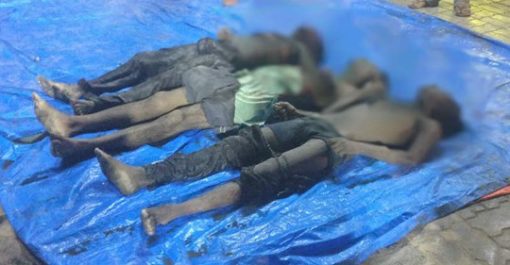
Seven people, including four sanitation workers, died of suffocation while cleaning a hotel sewer in Gujarat. The men had entered the septic tank without any safety gear, news agency AFP reported.
The incident took place at Darshan Hotel in Fartikui village of Dabhoi tehsil, about 35 km from Vadodara city.
The four sanitation workers were identified as Mahesh Patanwadiya, Ashok Harijan, Brijesh Harijan, Mahesh Harijan. All of them had been called in from Thuvavi in Dabhoi for the job.
Three employees of the hotel, identified as Ajay Vasava (24), Vijay Chauhan (22) and Sahdev Vasava (22), were also among those killed.
“We are investigating what was the exact gas they inhaled and what exactly happened,” said Deputy Superintendent of Police (Dabhoi division) Kalpesh Solanki.
Mahesh Patanwadiya was the first worker to enter the tank but after he stopped responding, Ashok Harijan, Brijesh Harijan, and Mahesh Harijan followed to help him, police officials said. Later, when the four workers did not come out, the other three hotel workers went in but they too fell unconscious inside the tank.
A case has been registered at the Dabhoi Police station. The owner of the hotel has been charged with causing death due to negligence and culpable homicide not amounting to murder.
“This government ( Gujarat ) will spends ₹ 3,000 crores on a statue, but won’t invest in machines to end manual scavenging. The 7 people who lost their lives while cleaning drains in Vadodara, could have been saved has this government got its priorities right” said Jignesh Mevani Dalit activist and Gujarat MLA.
One sanitation worker die every third day in India, according to a report released by an NGO in September last year.
The data by NGO Safai Karmachari Andolan suggests that 221 sanitation workers have died since January 2017.
The Safai Karmachari Andolan claims that the all-India death toll of 666 quoted by the National Commission for Sanitation Workers is misleading.
As per the NGO estimates, a total of 1,760 sanitation workers have died since 1993. This data is based on information collected by the NGO from only 16 states and Union Territories (UTs).




